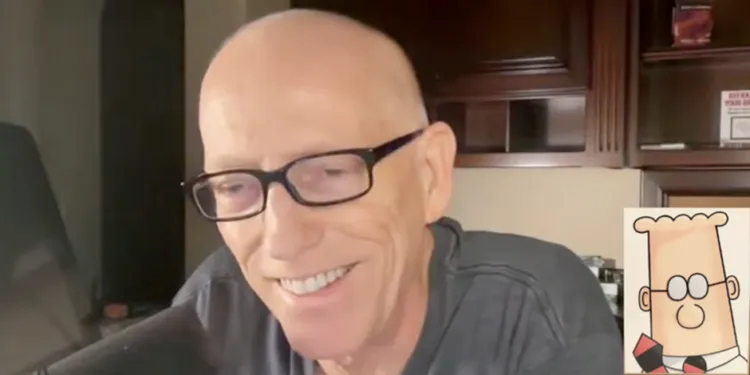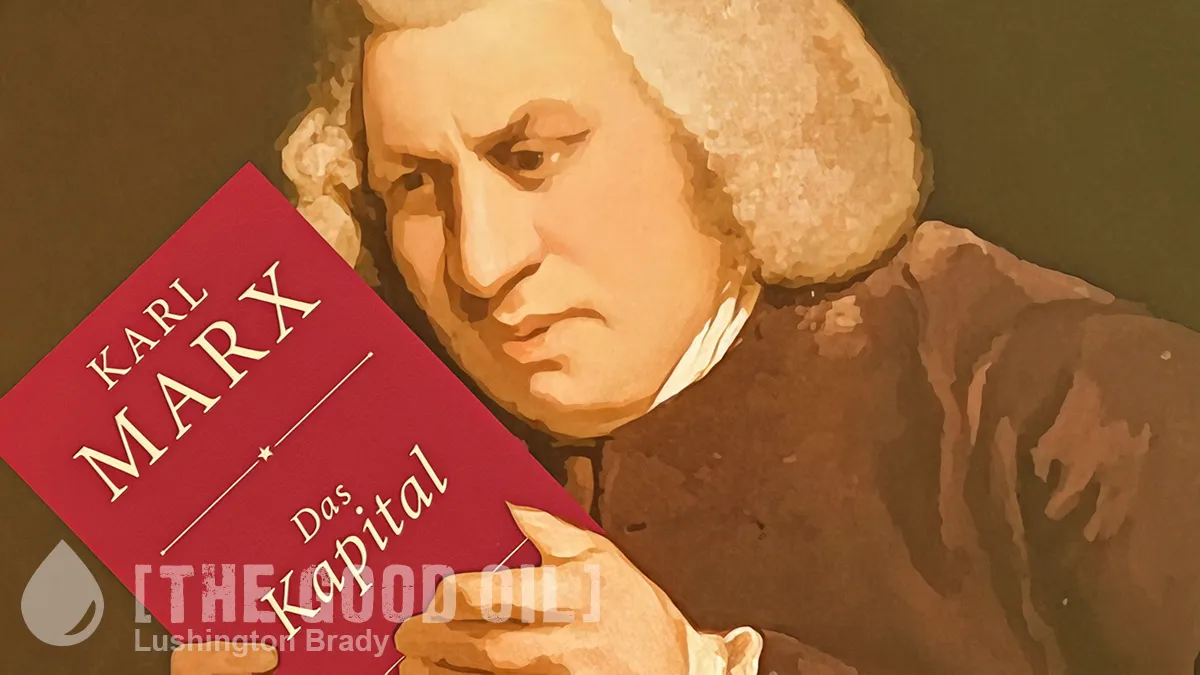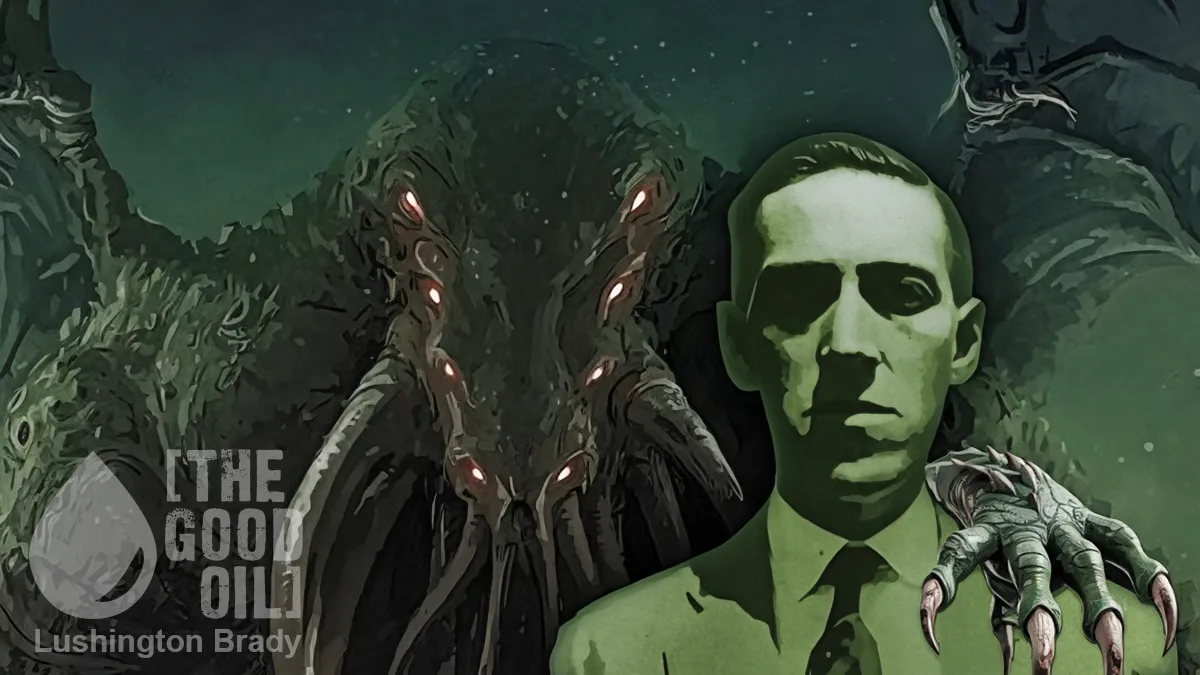Table of Contents
Damon Hayhow
Billionaire, philanthropist, playboy, international man of mystery. I was on track to this childhood career goal until I made one tragic mistake: I joined a gym. Now I rant a lot about food, weight training and body recomposition, at damonhayhow.com.
Almost two-thirds of Australian businesses are sole traders with no employees. Who do they violently overthrow in order to secure a fairer return from the means of production?
Twenty-six per cent of small businesses have two to four staff. In many cases the staff earn more than the owner, and the owner works more hours. Who should overthrow whom to take over the means of production?

If all human interactions are a conflict between oppressed and oppressor, how do any two people determine their oppression status when they interact? Do they wear badges? Is there an AI app? What if somebody violently overthrows a person only to discover they mixed up their oppression level and are the oppressor?
If all forms of strength and competence are a form of oppression against the weak and incompetent, how do the weak and incompetent successfully overthrow the strong and competent? Are the strong and competent required to submit to the weak and incompetent? Should they fight back at all? What if the oppressed person cannot fight? Should the oppressor violently overthrow themself?
The most oppressed members of society must be terminal patients, in comas, on life support. How do they use violence to seize the means of production? What are they supposed to do with the means of production if they are in a coma? And, if the strong and competent need to submit to people in comas, wouldn’t it just be easier for every member of society to hand over all means of production to terminal patients in comas? But then, wouldn’t that make terminal patients in comas the apex oppressors who need to be violently overthrown by all of society?
If the communist government has already stolen all property from everybody, then how are the proletariat in any different position than before?
Workers must also fit into a hierarchy of oppressors. Thus, after the workers have seized the means of production from the bourgeois owner, do the workers then need to systematically overthrow the worker with the next highest oppression level, until only the most oppressed worker remains? And, if the most oppressed worker now monopolises the means of production, wouldn’t that make the worker a bourgeois oppressor? So wouldn’t all the workers need to overthrow that worker to seize the means of production again? How does the cycle end?
Many of the largest companies are public companies with potentially thousands of shareholders. Do the workers need to violently overthrow 100 per cent of shareholders, or just 51 per cent? Should they start with violently overthrowing the large institutional investors and work their way down in size, or start small and work up? Is the goal to commit violence on as many people as possible, or as few as necessary?
Once the workers have violently overthrown the shareholders of a public company, do they need to get the share certificates signed over too? Presumably the shares would get signed over to the government because there is no private ownership. But if the government was already a shareholder, do they just give the shares straight back, and then recommit the violence on the government, over and over, forever?
If the workers violently overthrow a superannuation company that owns the means of production, but those workers are invested in the superannuation company, does that mean the workers should violently overthrow themselves?
Is the level of violence applied to overthrowing proportional to the per cent ownership of the means of production? Is it still reasonable to murder the owner of 0.000001 per cent of the means of production? Or should a small percentage ownership result in only a small percentage of violence, such as an earlobe flick, rather than a bullet to the brain?
Most modern businesses are divided into multiple business units. Who gets to violently overthrow whom in such an operation? And, seeing as the company could not operate without any of these business units (except HR), how are the workers supposed to keep using the means of production beyond a few weeks when the missing business unit causes everything to seize up?
If all human interactions are a conflict between oppressed and oppressor, how do any two people determine their oppression status when they interact? Do they wear badges? Is there an AI app?
Companies typically rely on external inputs, including critical imports from overseas. There are often also complex financing arrangements with multiple overseas parties. Also, the means of production themselves may be leased. Do workers need to travel overseas to violently overthrow the suppliers of all these complex inputs into the means of production? Who determines which suppliers to violently seize? If workers violently take over an overseas company, does the government of their home country now own that overseas company? What if the overseas country is also communist? Should all countries go to war to end the oppression on behalf of the workers?
If the government is already communist, then the government must own all of the shares of every company. So, do the workers need to violently overthrow the government if the government is the owner of their oppressive workplace? Because, if the communist government has already stolen all property from everybody, then how are the proletariat in any different position than before?
At what point in the process of violent overthrowing does an oppressor get considered oppressed?
This article was originally published by Liberty Itch.









